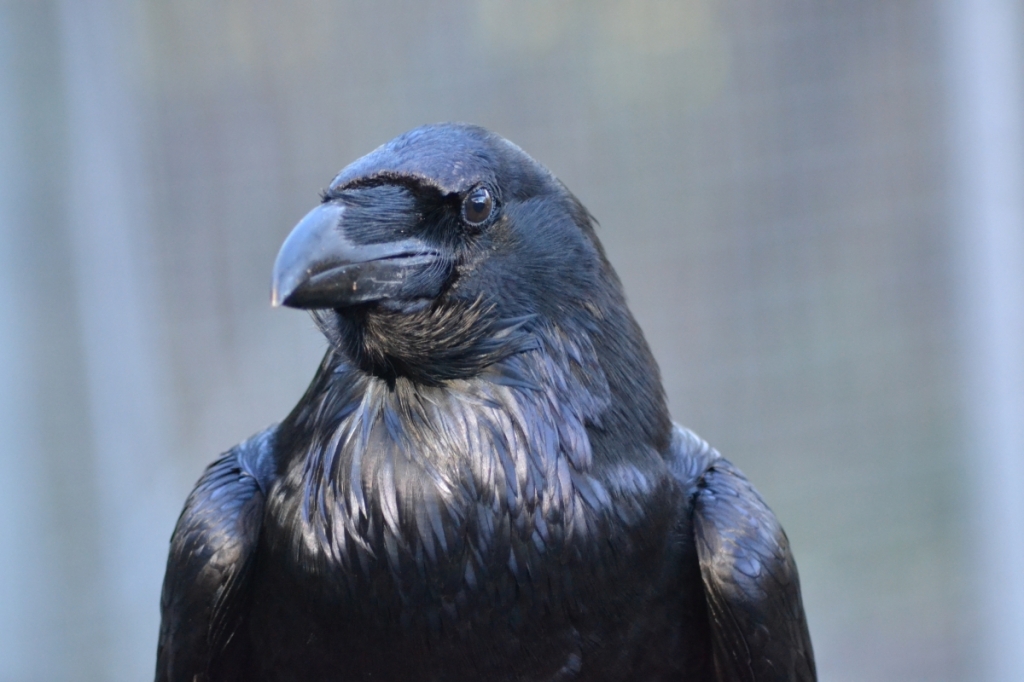-
Tips for becoming a good boxer - November 6, 2020
-
7 expert tips for making your hens night a memorable one - November 6, 2020
-
5 reasons to host your Christmas party on a cruise boat - November 6, 2020
-
What to do when you’re charged with a crime - November 6, 2020
-
Should you get one or multiple dogs? Here’s all you need to know - November 3, 2020
-
A Guide: How to Build Your Very Own Magic Mirror - February 14, 2019
-
Our Top Inspirational Baseball Stars - November 24, 2018
-
Five Tech Tools That Will Help You Turn Your Blog into a Business - November 24, 2018
-
How to Indulge on Vacation without Expanding Your Waist - November 9, 2018
-
5 Strategies for Businesses to Appeal to Today’s Increasingly Mobile-Crazed Customers - November 9, 2018
Spooky ravens can tell what you’re thinking, say scientists
The ability to think abstractly about other minds is singled out by many as a uniquely human trait. For the new study, the researchers wanted to see if ravens could reach the same conclusion without the benefit of visual clues.
Advertisement
While the jury is still out on whether the birds get paranoid, this implies that the ravens have a theory of mind, and a much higher degree of intelligence than we commonly assign to birds.
The findings were published in the journal Nature Communications.
Knowing how the peephole worked, the birds assumed that other ravens were observing them from the other side, and engaged in evasive caching maneuvers, hiding their meat more carefully.
“Ravens. take into account the visual access of others, even when they can not see a conspecific”, the study states.
Scientists noted that the close relatives to crows acted differently when they knew the peephole was open.
Recent studies purported to demonstrate such a basic “Theory of Mind” in non-human animals like chimpanzees, monkeys, and corvids. Those previous studies have also suggested that animals can understand what others see but in their case the test subjects had the possibility to see each another’s eyes or head.
Skeptics may say that the animals in these experiments may have been responding just to these surface cues, without really appreciating what others see.
So, while explaining the past state of the research, the authors wrote, “It still remains an open question whether any nonhuman animal can attribute the concept “seeing” without relying on behavioral cues”.
“This all makes them a good place to look for social cognition, because similar social pressures might have driven the evolution of similarly advanced cognitive capacities in very different species”, said Cameron Buckner, assistant professor of philosophy at the University of Houston and an author of the paper.
By showing this level of independent and abstract thought, slightly edging towards paranoia, the ravens were finally proven to have theory of mind, which basically means to think about what someone else might be thinking. Then, the windows were covered except for a small peephole. In particular, they often defend territories in stable breeding pairs as adults but live in more fluid situations as adolescents. Researchers through speaker played sounds of a raven competitor, but no other bird was present. A team of scientists from the University of Vienna found ravens can work out what a competitor might be able to see, even if they could not see the other raven.
Jason is a graduate of Biology and Chemistry, who wishes he had more time to spend travelling, immersing himself in new cultures and enjoying the outdoors. The setup involved two rooms separated by a wooden wall, with windows and peepholes that could be covered.
“Consequently, we argue that they represent “seeing” in a way that can not be reduced to the tracking of gaze cues”, they said.
Even without those cues, the ravens showed an understanding that they might be being watched, and changed their behaviour accordingly.
Advertisement
“We need to keep trying to fill in that story” about human development, says Buckner, and realizing that animals possess some of the precursors to our own Theory of Mind ability helps refine ideas about why we’re so exceptional.




























